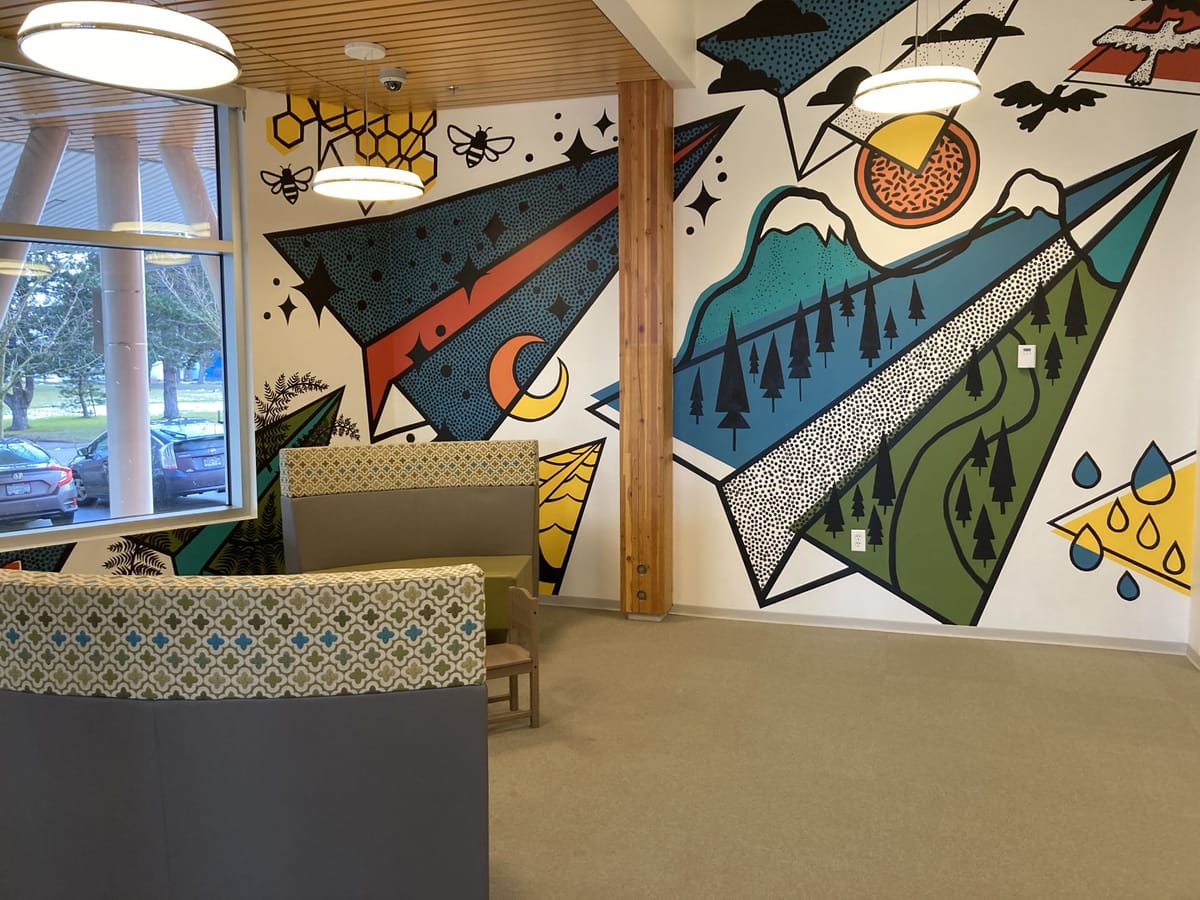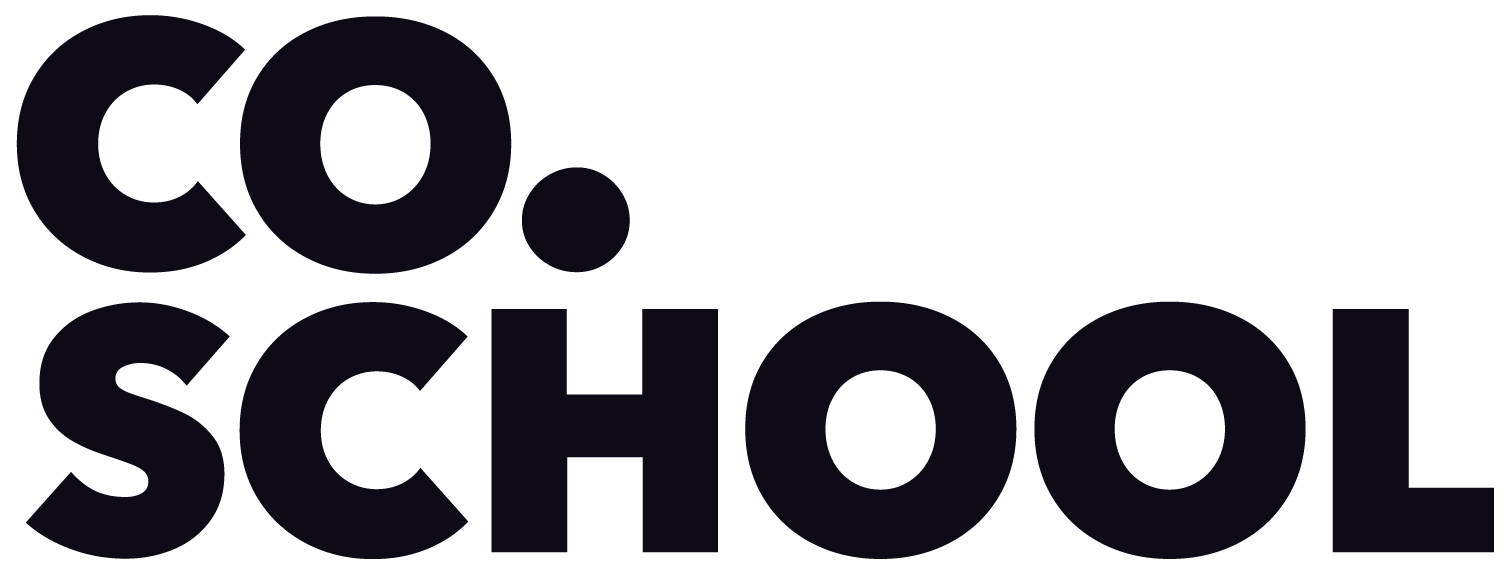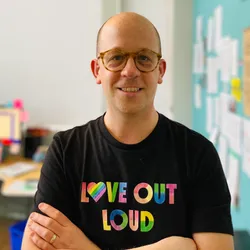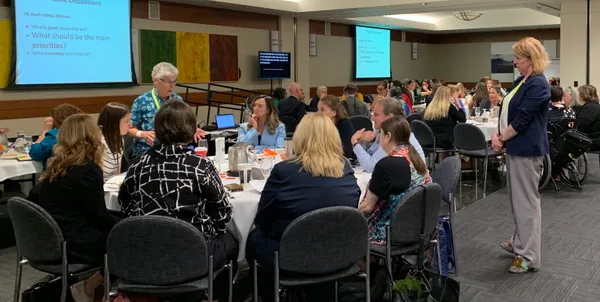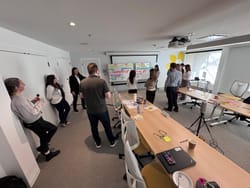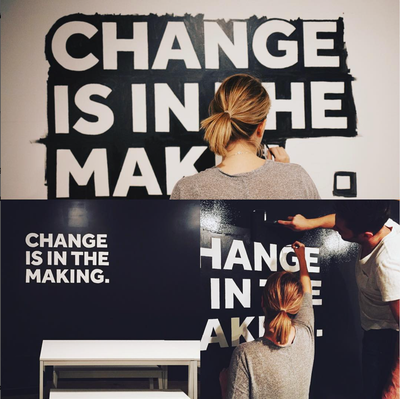Lead your group forward with clarity, listening and momentum
What is facilitation all about?
It's about harnessing the intelligence of the collective.
It's about using the power of design, listening, synthesis to access the genius of a group, generate ideas, make decisions and in the end, emerge with clarity.
When facilitation is used well, we can hear diverse perspectives, gain new insights, share power in the room, and make enormous strides forward.
Facilitation doesn't just help move forward meetings and rooms, it helps run processes, organizations and movements.
What kind of methods are used?
- Participatory dialogue: The work of Art of Hosting, such as World Cafe, Circle method and Open Space Technologies, all help create moments of decentralized, authentic dialogue.
- Design methods: From design sprints, to design thinking, to human-centered design and the field of UX design, the process of empathy-driven experiences of listening are often found in facilitation.
- Remote and virtual sessions: Digital facilitation is a powerful option when we can't gather in-person. Tools like Mentimeter, Miro and more help document the conversation, while real-time facilitators draw our real stories.
What kind of work gets done through facilitation?
- Conferences, summits and retreats: Gather your community to use the power of participatory design, dialogue and knowledge exchange. That could look like a leadership team from a network or system trying to navigate a crisis or change, or participants across a sector or org coming together to explore new solutions / ideas. Check out AIDE Canada's "Impossible Conference" as an example.
- Strategic planning and community-led decision-making: Bring your stakeholders together across the system (whether it’s the same organization or a consortium) to dialogue and decide on new ways forward. This could look like renewing an organization’s mission, vision and values, building a governance framework, or navigating a contentious topic. Check out our work with BC Disability Collaborative as an example.
- Collaborative design work: Convene your community for the work of creative-problem solving and co-creation. Whether through a week-long design sprint, or a weekend-long c0-design summit, the tools of design help us move through "what's possible" and arrive at "what we're doing next." Our design summit with the Anglican Church of Canada is a great example of this.
What people say
“I’ve had the opportunity to work with Co.school on multiple programs, events, and initiatives related to integrated youth services and have worked alongside them to support various groups both large and small. I can say that I have been more than impressed at every juncture. Co.school not only provides excellent facilitation, but also supports the team throughout the entire planning process. I am consistently amazed by the Co.school team’s ability to embed feedback from a multitude of stakeholders throughout the entire planning process and ensure everyone’s thoughts are reflected in the final product.”
- Sarah Thomson, Program Coordinator for Foundry and FIYSN
and
“As we face crises on many fronts—health, climate, inequality, governance—the challenge that looms largest for me is our diminished ability to work together across lines of difference. The co-creation mindset is critical for anyone working in complex problem spaces. The methods and tools that Co.school employs help people work together by ensuring meaningful participation, harnessing collective intelligence, and shaping sustainable solutions for the future. Kevan and his team are exceptionally skilled and possess a toolkit of creative problem-solving techniques that can be applied across disciplines. I hold their work in the highest regard."
- Krystal Renschler, Founder & Facilitator, Mutatio
Getting started
Book a free intake call: get to know Kevan, learn more about facilitation for systems change, design, decision-making.
Case Studies
Anglican Church of Canada: A collaborative design summit
People-centered innovation with an evolving organization On the lands now known as British Columbia, the Anglican Church of Canada has been operating for more than 100 years. And over these years, the organization has come face-to-face with the need for change, on more than one occasion. Often, these crossroads moments
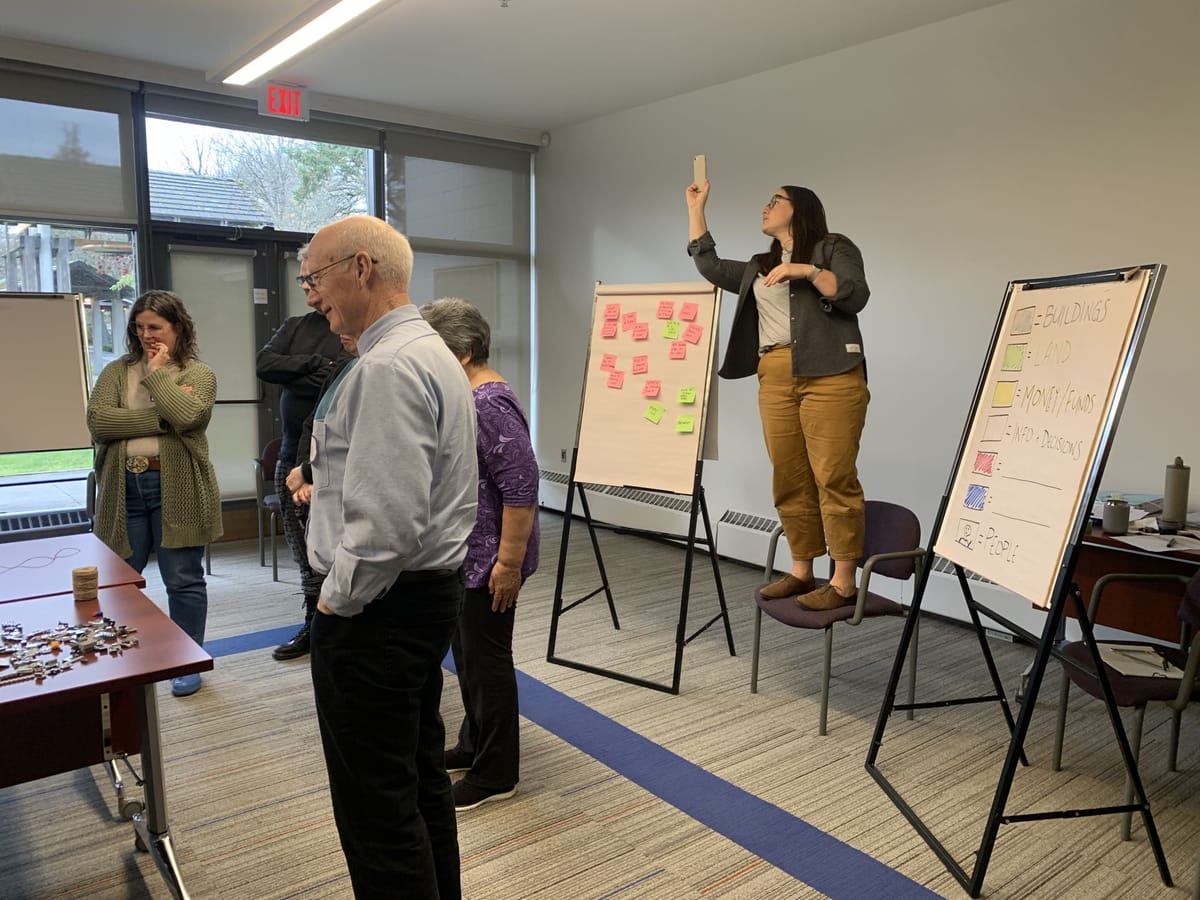
BC Disability Collaborative: Co-creating a new organization
Helping advocate for disability rights in BC When the BC government made a decision that would negatively affect families who receive autism funding, the autism community moved quickly to advocate for change. Assembling a rough coalition that went beyond only Autism-related organizations — reaching out to friends and colleagues and orgs

AIDE Canada: Designing the “Impossible Conference”
How a two-day conference helped explore solutions for longstanding challenges in the autism community As a convener and knowledge mobilizer in the space of autism support networks, AIDE Canada wanted to design and host a conference that brought contributors from all across Canada to tackle long-standing challenges in the autism
